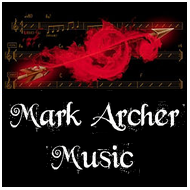 | ||||||||
|
|
|
Blowout Saxology This is THE way to learn from a whole spectrum of great saxophonists. Blowout Saxology :~ A dozen key areas to learn some Wisdom From The Greats. Keep on learning and improving, but most importantly enjoy the experience of playing the Saxophone. i.Live Work and Showmanship 1. I approach ballads and up tempos in a different manner. And I do it, mostly for a change of pace. I try to mix it up because too much of one becomes monotonous. -- Ben Webster 2. Stick to your own style. -- Ben Webster 3. Ben Webster was a communicator – someone who tried to share his love of the music with others. He said, ‘I like to play things that people understand, or maybe tunes that they could recognise. And so - I play for the people, just as much for myself. Because as I say, I still like to play.’ 4. Dave 'Fathead' Newman on the art form of saxophone playing to accompany singers: ‘I have to tell you my approach is to listen to what the singer is doing. I focus on accompanying and not getting in their way. I don’t solo and play as though the date is mine. I focus on accompanying. It’s one thing to accompany and another thing to solo, and I try to accompany. I want to do whatever it takes to make them, or what they’re doing sound good.’ 5. Dexter Gordon live had two trademarks. After finishing a solo he would hold his sax horizontally in space, his head bowed, which was his signature way of thanking the audience for its applause. He was equally famous for his eloquent announcements, a touching example of which is – ‘I hope we have put some dreams under your pillow tonight.’ 6. When playing at live concerts Jan Garbarek likes to employ an electronic ‘harmonizer’ effect and a delay box: ‘What this brings in is a dimension, something to set my sound apart from something I can control. That’s what it does. It’s a textual thing…in a good moment it can add something, even on an emotional level. But the need for it has to stem from the instrument itself.’ 7. If you wanna be a showman then pick up on the attitude of Junior Walker when he says: ‘I am just into makin’ a joyful noise. No, I never did take to playin’ no real sad songs. I leave that to the other men talkin’ through this kind of horn.’ Junior Walker the showman would blow with that raucous, gut-bucket sound, his sax in turn groaning, rasping, bellowing, screeching, squeaking and straining. He would play standing, from a crouch, or even lying on his back in venues as wide-ranging as a Mississippi riverboat to a Ukrainian community hall turned punk palace. Every show a party. 8. Even do what a young King Curtis would do - get up on the bar and ‘walk’ in the tradition of the great honking Tenors. 9. Louis Jordan, ‘I loved playing jazz…loved singing the blues…but I wanted to be an entertainer -- that’s me -- on my own. I wanted to play for the people, for millions...jazzmen play mostly for themselves…I want to play for the people.’ Louis Jordan was a master showman. As popular for his singing as for his saxophone playing, Louis had a string of hits in the 1940s and 1950s with humorous, catchy, jump tunes. His ‘golden voice’ with its joy and festive fun coupled with the clear, bright, and exuberant sound of his ‘silver saxophone’ created musical cartoons that live long in the memory. 10. Louis Jordan’s vocal style and appreciated how the brilliance and charisma of this artist ...positive energy. 11. Hurricane Maceo Parker blew through, delivering a multi-hour non-stop barrage for an audience that danced itself into a frenzy before the second song was over. The pulse of funk are Maceo's fingers stroking of the almighty groove. Using his heady mix of hypnotic music and dance, Maceo relentlessly cajoled the crowd to enjoy themselves. And they did. 12. The spontaneity of Manu Dibango’s performances is the product of hard work and careful planning. Every detail of the music is guided by Manu’s intense vision. ‘We work like crazy in rehearsal since our efforts shouldn’t be apparent in concert. The band manoeuvres like chess players, even with the audience. A concert is held like a dissertation, with an introduction, theme and conclusion. It has its high points…while we take our turns singing, something is happening every second . Each in turn -- the band, the audience -- makes its next move on the chessboard…over the years, the band became my instrument, a vehicle to realize a vision I could share with others.’ 13. The sweet spot. Sonny Rollins. There are certain parts of the room where the horn just projects better, where the sound is more friendly. I’m trying to find the ‘sweet spots’ That’s very important….they are those where the horn talks back to you -- and you can hear what they’re hearing. ii.Trance 1. Art Pepper confessed to an outer body experience of observing himself from the outside when he played. It was a kind of hypnotic state that made him feel possessed of immense power: ‘I love that I feel like a god...a trance that is all-powerful.’ 2. ‘Music is the greatest mediation of all, and he was just staying with the music, practising every day, presenting the music to the best of his ability. And this…was as close as he could ever get to any spiritual source.’ Garbarek agreed, ‘I feel very much the same way.’ 3. When Stan Getz was playing live this alpha state was almost physically visible. The attention of the audience was drawn to his eyes, the intense orbs that belied the calm within. The playing was both a shared conversation and an intense meditation. It was a public performance and a private rite. There was the feeling that the music was not so much heard as overheard. ‘Sure I’m thinking about what I’m playing, but what I’m trying to do is psyche myself into relaxing so the notes come out of the horn in a natural way. When I got this saxophone, it became a religion…it was just work I loved….I would play it if nobody listened to it. Any jazz musician, if there’s nobody around to listen, would play just for the sheer joy of improvising music.’ 4. The ultimate aim of Sonnys Rollin's playing is to get into that space where he and his saxophone ‘disappear’ in the activity of making music: ‘I don’t even want to know I have the horn there -- I want the music to play itself.’ iii.Ballads 1. ‘I enjoy playing ballads more than anything else. You can pour your soul into them, you can say everything.’ -- Art Pepper. 2. Dexter Gordon's playing on ballads has a spine-chilling tonal quality which lives long in the memory as a very definite musical signature. His take was: ‘When you know the lyrics to a tune…you have to have some kind of insight as to its composition…if you don’t understand what it’s about, you’re depriving yourself of being able to communicate this poem.’ iv.Melodic Playing 1. ‘The melody is what is most important. That is what music is all about. I’ve always told people in my bands if the audience don’t hear the melody you’ll lose them…It’s like Ray said, “It is hard to play simple.” And he was right. It’s harder to play simple than to play technical. People are always trying to show off instead of getting to the heart of the music…The soulful way is the vocal approach. It’s not a technical approach. It’s like singing. You can almost hear the words instrumentally.’ -- Hank Crawford. 2. ‘You have got to listen, listen, listen and develop your own sound. You have to be true to who and what you are…You’ve got to be able to play what you want, but the audience has to be able to understand…I never thought of playing for the musicians. I always thought about mass appeal…and the consumer is always going to buy the record by the artist they ‘hear’ and that they ‘know’ by sound. That’s identity. I think identity is the key to all success.’ -- Hank Crawford. 3. King Curtis’s saxophone style was influence by a vocalist's approach to a melody and phrasing. He was proud of the talent he possessed to imitate the inflections of the great soul singers—as he said, ‘I can take a record by a singer, and I can play the identical version on my horn.’ 4. ‘It is my belief that gospel and blues are the roots of this music that we play today, all of this popular music we hear today. I play the blues in everything I play -- fast, slow, ballad, whatever. The blues is in there.’ – Stanley Turrentine 5. Stanley Turrentine had a muscular tone which could dig deep into the bottom of the horn and yet soar into a gospel cry or broaden to a thick, sensuous vibrato. Expressive of genuine feeling for the music, his phrases are trance-like yet you can easily follow their message. Stanley Turrentine will have forever a Saxsound that preaches the truth – ‘I play from the gut.’ 6. ‘Melody is the one thing that endures. Of course, there’s room in jazz for all kinds of experimentation but I dig melody. And don’t let anyone fool you. It’s difficult to play -- great control is needed. Many players work fast and in doing so overlook detail. This is unfortunate for in the detail of a song lies much of its beauty.’ – Sonny Rollins v.How to Practice 1. Be individual. -- Art Pepper 2. ‘I don’t want to sound like somebody else. But I think it’s healthy to listen to these guys, they all have different styles, and you know them as soon as you hear them…Listen at least 3 or 4 times to a player before you pass judgment.’ -- Ben Webster 3. For the student of music, Dave 'Fathead' Newman has some very solid advice about practice: ‘It’s very important to pick up the instrument as often as you can, even when you’re not performing. You must have skills to execute…You have to been working consistently. This is something that goes on and on as long as you play. Mere technical practice on its own, of course, does not make for soul in music. If you want to touch others with your music something else is needed.’ And Newman has something to say about that as well: ‘I tried to keep my ears close to my heart.’ 4. In his search for sound Garbarek has explored different practice options. He went through a period where he practised in a room with very dry acoustic: ‘It was painful work. Every little thing you did wrong was clearly heard! It turned out that when I came into a normal room I could really fly. It was as though I had wings, and everything sounded wonderful. The rigid discipline brought out good results for me.’ Our suggestion is unlike that of the exceptionally confident Mr Garbarek, in that you should find a room in your home which has barely any clutter so that you have a bright acoustic. This could be a kitchen, or bathroom, or utility room. Alternatively, play facing a wall so the sound can bounce back at you. Or ‘do a Stan Getz’. Get into the car, go to the countryside and play in an open field. That really helps to give you a big sound. Sonny Rollins spent a period of his life playing solo or with friends on the bridges of New York because: ‘It was beautiful because you were playing against the air. I could play as loud as I wanted to, and just go through anything.’ 5. In keeping with his African cultural heritage, Manu Dibango sees the making of music as a spiritual occupation. It involves communion with a spirit or ‘diva’. ‘The real diva remains the music. I am a musician. Since I love it, I love sincerely as a good musician -- one who plays well, who is one with his instrument. Its speed of thought fascinates me: as I improvise, the instrument is able to speak a cogent language. Since adolescence, I have mixed life, feelings, friendships, and my profession. Now I’m trying to sort it out as fast as possible.’ Manu’s sense of his art is not some woolly, metaphysical concept: it is based on hard study and strict discipline. From structure comes freedom, and from rhythm comes joy. ‘The best improvisations need structure. Then inspiration is free to come; you always end up on your feet. Starting with a jazz standard, you can make people trip forever without ever playing the same thing. This is the heart’s rhythm, life’s rhythm, beating a simple hypothesis. I love to organize sound and music on stage. I love to experience a concert at human level, closer to the public than the megaconcerts of the big megastars.’ 6. ‘If you get a difficult phrase or piece, play it 100 times, it sounds better then.’ -- Plas Johnson. vi.Listen, Listen, then Listen some more 1. Dave Brubeck: ‘And at no time that I was playing a solo that I didn’t think Paul wasn’t listening to everybody else…he got given the nickname ‘The Stork,’ because he’d stand on one leg and lean on the piano…with his head down and the crook of the horn, kind of suggesting a stork in repose...I knew he was listening to every note I played all night and I was listening to every note of his, and often you’ll find musicians that are so involved with themselves, that as soon as they’ve finished, they turn off.’ 2. Stanley T stayed great because he stayed open and accessible to every type of music around him. ‘I like music period. People play classical music, which is hundreds of years old. Why not the music we play -- jazz, pop whatever? Jazz is America’s classical music…too many people make the mistake of not listening to older music.’ So, Stanley says – listen to everything, be open to everything and turn all of that musical experience into the gold that is your own sound. vii.Tone 1. ‘My concept of sound was that it should be powerful. The heavyweight kind. And the sound comes from what you hear in your mind. Obviously, if that’s what you hear, eventually it’ll come out. For me the sound develops.’ -- Dexter Gordon 2. Lou Donaldson listened to just about everyone, and not only alto players. With this knowledge of the entire jazz language, Lou’s is definitely an individual voice. 3. That ‘beautiful’ tone always sounded effortless. But as Stan Getz himself pointed out, such ease and lightness are the product of hard work and dedication. ‘I always wanted to take as much reediness out of the sound as I could and hear more of the breath…I like to hear the brass vibrate in the sound, not just the reed. I like a dark sound…People think I play effortlessly. I remember doing a record date with Bill Evans and afterwards he said to me, you make it sound so easy, but when I get right up next to you you’re working hard and making it sound easy.’ 4. Stan Getz – ‘If you love an instrument that sings, play the saxophone. At best it is like the human voice…The challenge is to sing on that ‘voice’ that is outside your body. I love that challenge and have for forty-five plus years.’ 5. ‘Bird’ – ‘You got to use a lot of diaphragm…There’s got to be a foundation. It’s got to come from the bottom. After you get the wind up in your throat and mouth you can shape the sound any way you want, make it pretty or loud or soft, but first you got to have the foundation. It has to come from the gut.’ viii.Life Skills 1. ‘Be a selfless individual’ says Art Pepper, ‘The selfish or shallow person might be a great musician technically, but he’ll be so involved with himself that his playing will lack warmth, intensity, beauty and won’t be deeply felt by the listener.’ 2. Be true to who you are. For Garbarek musical meditation is a combination of truth to self and truth to sound. In effect, these are the same truths for Garbarek: ‘what makes it (music) new is the special individual colour this person has to bring…to be true to one’s self…I’m concerned with the sound, with the tone.’ 3. Charlie Parker – ‘Music is your experience, your thoughts, your wisdom. If you don’t live it, it won’t come out of your horn. They teach you there’s a boundary line to music. But man there’s no boundary line to art.’ ix.Improvisation 1. Getz’s thoughts on the art of jazz improvisation were also straight forward. He often spoke of improvisation as a mode of conversation and he outlined its elements: ‘It’s like a language. You learn the alphabet, which are the scales. You learn sentences which are the chords. And then you speak extemporaneously with the horn…musically I love to talk off the top of my head...this I call my ‘alpha state,’ ‘relaxed concentration’ and effortless creativity. When I’m really free, I like to play totally by ear, knowing the basic structure of course. And that’s what jazz is all about...the satisfaction of spontaneous interaction.’ x.Composition 1. ‘Never be afraid to asking a lot of questions of the people who did write. So I learned by doing. When I had my own albums, I would write the tunes, because I felt that if they were playing my tunes I was able to do more what I wanted to do -- they were the right frameworks.’ -- Art Pepper 2. Titles of tunes were important to Dave ' Fathead' Newman : ‘When I compose I tend to think of things I would like to play. I get an idea in my head and start to embellish it. Lots of tunes I pick the title first...this way I have something to work on that fits the title.’ 3. ‘I'm an experimentalist…I like to get into new things… break new ground. My mind is always probing for different things and sounds. I've never let my mind stagnate…If I didn't experiment with music, it would mean nothing to me.’ -- Eddie Harris. 4. Try different musical styles. The album that really took off was the 1994 collaboration with the Hilliard Ensemble entitled ‘Officium’. This juxtaposed Garbarek’s improvisations on the sax as the ‘fifth voice’ over the choral singing of ‘early music’ pieces. This was a new departure for Garbarek and a wholly welcome one. As he notes: ‘Starting phrases together, meeting in different places it was almost as if the music was written for us. It was a meeting in the most natural way, and one of the most challenging and complete recordings I have been involved with.’ ‘Officium’ had universal appeal in that it drew classical, as well as jazz, listeners to his work. This album evaded musical categorisation but still managed to sell in millions of copies. 5. Lou Donaldson relates his own version of this period of studio recording of his 'Boogaloo' style: ‘What would happen there was they’d record it, and I’d overdub it. A lot of times I never saw the musicians. I never played them more than once: I’d listen one time and then I’d cut it -- and that was it. All the gems are in the first recorded take.’ xi.Have Musical Heros 1. Although always true to his African musical heritage, Manu Dibango found his greatest inspiration in the work of the jazz greats. ‘Basie, Duke, Coltrane, Parker -- some of their songs marked me for life. I ended up discovering the world through music. In years to come, these musicians would remain with me: I would never meet better than they. Without heroes, life is flat. To those heroes who accompany me in my life, they have never been dethroned.’ Sax Mantras 1. ‘I listen with my eyes, see with my ears, speak with my voice, and my sax.’ --- Manu Dibango. 2. Stanley Turrentine will have forever a Sax ly that preaches the truth – ‘I play from the gut.’ 3. John Coltrane said, ‘You just keep going all the way as deep as you can. You keep trying to get right down to the crux.’ 4. Charlie Parker – ‘Master your instrument, master the music and then forget all that **** and just play. Don’t play the saxophone, let it play you.’ And finally, The Ultimate Musical Aim Throughout his musical career, regardless of his current style, Coltrane's aim always remained the same, ‘Over all, I think the main thing a musician would like to do is give a picture to the listener of the many wonderful things that he knows of and senses in the universe…That’s what I would like to do. I think that’s one of the greatest things you can do in life and we all try to do it in some way. The musician’s way is through his music.’ Coltrane added, ‘My music is the spiritual expression of what I am -- my faith, my knowledge, my being….When you begin to see the possibilities of music, you desire to do something really good for people, to help humanity free itself from its hang-ups...I want to speak to their souls.’ |
|

|

|

|

